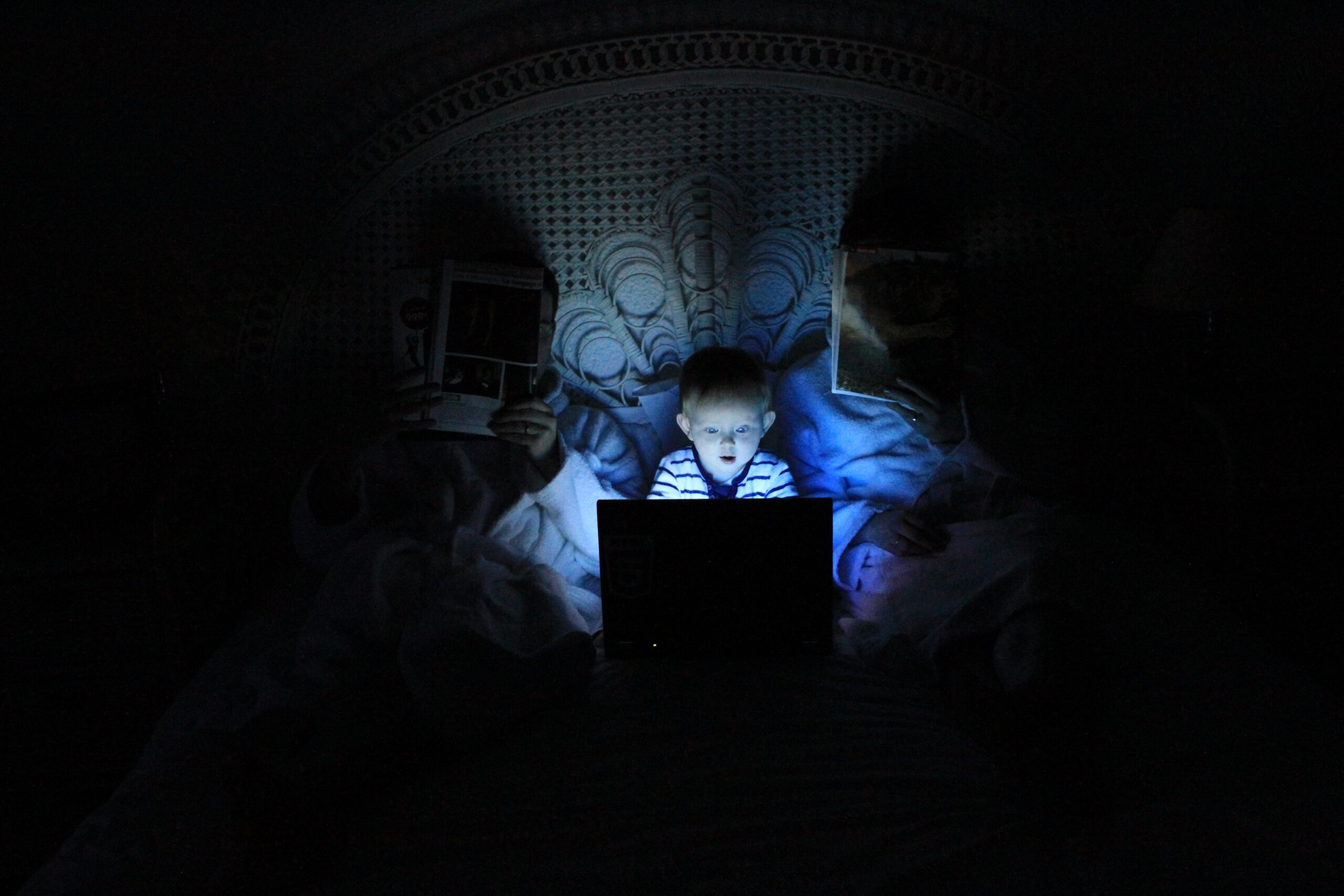Social isolation is sometimes linked to excessive screen use. The latter has become a growing concern, particularly among children. Computers, touch-screen tablets and other devices are everywhere. This article explores the various impacts of screens on children. Emphasis will be placed on the potential dangers of social isolation.
Screens and their impact on children
These days, children are exposed to screens from an early age. They grow up surrounded by all this technology. This omnipresence can have various consequences on their physical and mental health REF [^1^]. Adverse effects on brain development have also been noted.
Vision problems caused by screen use
Too much screen time can lead to vision problems such as eyestrain and myopia. Limiting children's screen time is essential for preserving their visual health.
Disrupting the sleep cycle with screens
Blue light emitted by screens can disrupt the sleep cycle, making it difficult for children to fall asleep and stay asleep REF [^2^]. The production of melatonin, the hormone responsible for regulating sleep, can be suppressed. This makes it harder for children to fall asleep and get a good night's sleep.
How can I reduce the effects of blue light?
Using blue light filters and limiting the use of screens before bedtime can help reduce the effects of blue light on children's sleep.
Lack of physical activity and weight gain
Excessive screen use is often associated with a sedentary lifestyle. This increases the risk of weight gain and obesity in children. Physical activity is essential for overall health and well-being, and contributes to the development of fine and gross motor skills.
Social isolation linked to exposure to screens
Children who spend too much time in front of screens can neglect their social relationships, leading to isolation and loneliness REF [^3^].
How excessive screen use can lead to social isolation
Social isolation can have a detrimental effect on children's social and emotional development. Their ability to establish and maintain healthy relationships is compromised.
The consequences of social isolation
Isolation can affect children's self-confidence and ability to interact with others, which is necessary for their social and emotional development.
What effects do video games have on children?
Video games can have a variety of effects on children, from improving cognitive skills to increasing the risk of aggressive behavior REF [^4^]. So it's up to parents to keep an eye on their children's nature, so that they only get the beneficial effects of this practice.
The negative effects of video games
Excessive use of video games can contribute to behavioral and concentration problems, as well as mental health risks for children. Young children who spend too much time in the virtual worlds of video games can gradually lose touch with the real world.
How can we limit children's exposure to video games?
Establishing clear rules and encouraging children to participate in other activities is essential to reducing their exposure to video games. .
What's the point of restricting screen use?
Restricting children's use of screens is essential to safeguarding the health and well-being of children and teenagers. It also encourages healthy development.
The importance of managing screen time
Appropriate management of screen time is essential to prevent negative effects on children's health and well-being. Adults can also empower young people by entrusting them with the management of their screen time.
How to identify the signs of excessive screen use
Parents should be alert to signs of excessive screen use, such as fatigue, irritability and lack of interest in other activities.
Practical tips for limiting screen use
Adults can implement practical strategies to restrict screen use and reduce screen time. Parents can protect their children by setting time limits. Creating screen-free zones at home. This also means encouraging screen breaks and organizing activities together.
The dangers of screens
Excessive use of screens poses various risks to children's health and well-being. To minimize these risks, here are a few recommendations adapted to each age group:
Here is a summary of these recommendations by age group:
Ages 0 to 3 :
- Avoid using screens altogether.
Ages 3 to 6 :
- Very limited and occasional use of screens, but it's best to abstain altogether.
Ages 6 to 9 :
- Limit screen time to one hour a day.
- Mainly for educational purposes.
- Adult supervision required.
Ages 9 to 12 :
- Access to educational content on screen, without an Internet connection.
- Adult supervision required.
Ages 12 to 16 :
- Controlled use of the Internet.
- Adult follow-up required.
From 16 to 18 years old :
- Greater freedom of access to the Internet.
- Use for educational and information purposes.
- Constant adult supervision is no longer essential, but is still recommended.
Proper use of tablets and other digital devices
Parents can help their children to adopt a responsible approach by establishing clear rules and monitoring their use. Proper use of screens helps prevent negative effects on children's development.
In conclusion,
Balancing screen time with other activities is crucial to children's healthy development and well-being. Parents therefore have a key role to play in managing their children's use of screens.
Disclaimer
This article is based on scientific research and aims to provide accurate and reliable information. However, it does not replace the advice of a health professional.
References
Footnotes
REF [^1^] Virtually impossible: limiting Australian children and adolescents daily screen based media use ↩
REF [^2^] Type of screen time moderates effects on outcomes in 4013 children: evidence from the Longitudinal Study of Australian Children ↩
REF [^3^] Understanding why the COVID-19 pandemic-related lockdown increases mental health difficulties in vulnerable young children ↩
REF [^4^] The mental health effects of the COVID-19 pandemic on children and adolescents: Risk and protective factors. ↩
